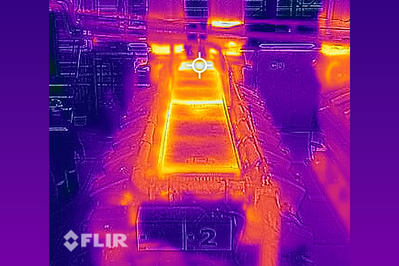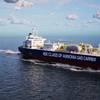Engine Room Fire Sparks Request for New IMO Requirements
The UK Marine Accident Investigation Branch (MAIB) has released its report into the engine room fire on board ro-ro passenger ferry Stena Europe as it approached Fishguard, Wales.
At 2115 on 11 February 2023, a fire broke out in the engine room of the vessel while on passage from Rosslare, Ireland, to Fishguard, Wales. The fire caused significant damage to the engine room but nobody was injured and there was no damage to the environment. The fire was extinguished by the crew.
The fire ignited on a main engine when pressurized fuel from a loose fuel pipe connection sprayed onto a high temperature exhaust pipe. Neither of the designed protections against fuel fires (spray shielding on fuel pipes and insulation of hot surfaces) were effective.
The investigation found that the fuel had ignited on part of the engine’s exhaust system that had a surface temperature of over 400°C. The post-accident inspection on board Stena Europe identified that much of the protective shielding around the fuel systems on all engines was in a poor condition or missing, and exposed hot surfaces of over 220°C were found on all running engines.
In 1995, Wärtsilä, the engine manufacturer, had identified that the fuel system on this model of engine was prone to leakage and had made a modification available to improve the system. The manufacturer’s complete modification had been installed on one of Stena Europe’s four main engines. The fuel systems on the remaining three main engines had been partially modified.
Repairs made to the damaged engine since the fire have included the manufacturer’s modification to fully upgrade the fuel system, and rectification of missing or damaged shielding.
The investigation concluded that the ship’s crew were insufficiently trained to inspect engine fuel systems, and the temperature measuring equipment used by the crew to monitor the engine exhaust insulation did not effectively identify any hot spots.
A recommendation (2024/170) has been made to the Maritime and Coastguard Agency to submit a paper to the IMO proposing the introduction of a requirement for the use of thermographic equipment to identify exposed high temperature surfaces.
Recommendations (2024/171 to 2024/174) have also been made to Stena Line Ltd to: review the existing defect reporting system; provide training to improve equipment inspections; promulgate details of this accident to the ships in its fleet; and introduce the use of thermal imaging cameras for the identification of exposed high temperature surfaces.















